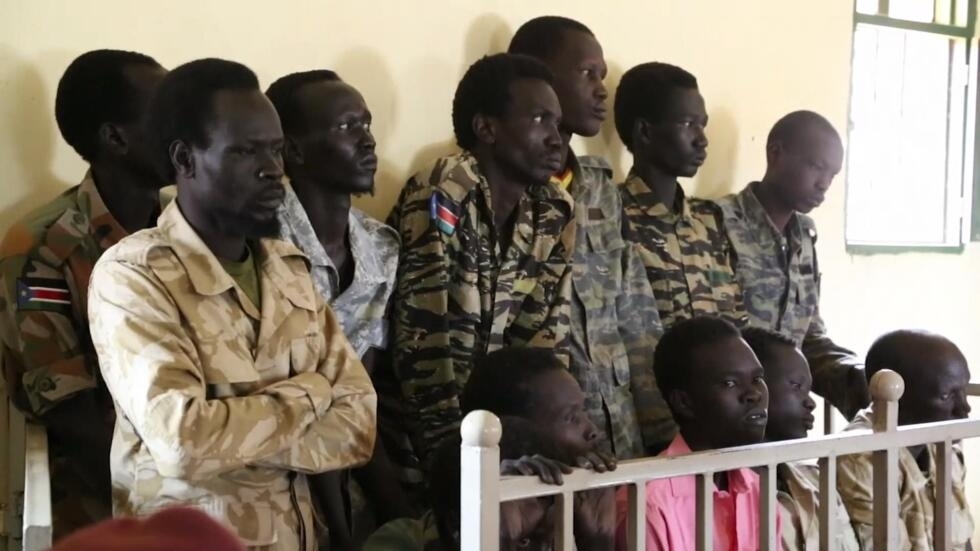A military court in Maridi, South Sudan, has convicted eight soldiers from the South Sudan People’s Defence Forces (SSPDF) for murder and other serious offences. The verdict follows a comprehensive review of 12 cases, including allegations of rape and murder.
Colonel Mayiel Riak, the acting director of military justice for the SSPDF, reaffirmed the force’s commitment to ensuring accountability for crimes committed by its personnel.
“SSPDF general headquarters is committed to promoting accountability among everyone working under the SSPDF if they commit crimes. We are ready to bring them for accountability, including conflict-related sexual violence against women, girls, and mothers committed by military personnel, to bring justice to (the) people of Maridi,” he stated.
The General Court Martial’s proceedings resulted in prison sentences for some convicted individuals, while others were acquitted and released. This judicial action aims to reinforce trust and promote accountability within the military.

Eliaba Anthony, a spokesperson for individuals with disabilities, highlighted the challenges faced by this vulnerable group. “People with disabilities encounter numerous obstacles. For instance, a person who cannot walk may be vulnerable to sexual assault and may hesitate to report it due to feelings of shame…Our goal is to increase awareness so that we can feel secure and understand that the government is committed to our protection,” Anthony said.
The United Nations Mission in South Sudan (UNMISS) has extended both technical and financial support to the General Court Martial to bolster justice and accountability efforts. Those found guilty are also required to provide compensation to survivors.
A one-day event was held to foster dialogue between the military and civilian communities, with over 50 representatives from local authorities, communities, and civil society participating. During the event, a representative for women urged officials to provide adequate support to soldiers, such as proper food and salary payments, to help prevent criminal activities.
Participants also called for enhanced protection for the most vulnerable groups, including individuals with disabilities. This process is seen as a significant step towards improving military discipline and reinforcing South Sudan’s commitment to peace and security.
The Military Justice Directorate used the occasion to outline its strategies for combating sexual violence and improving military professionalism, underscoring the government’s dedication to safeguarding those it serves.


